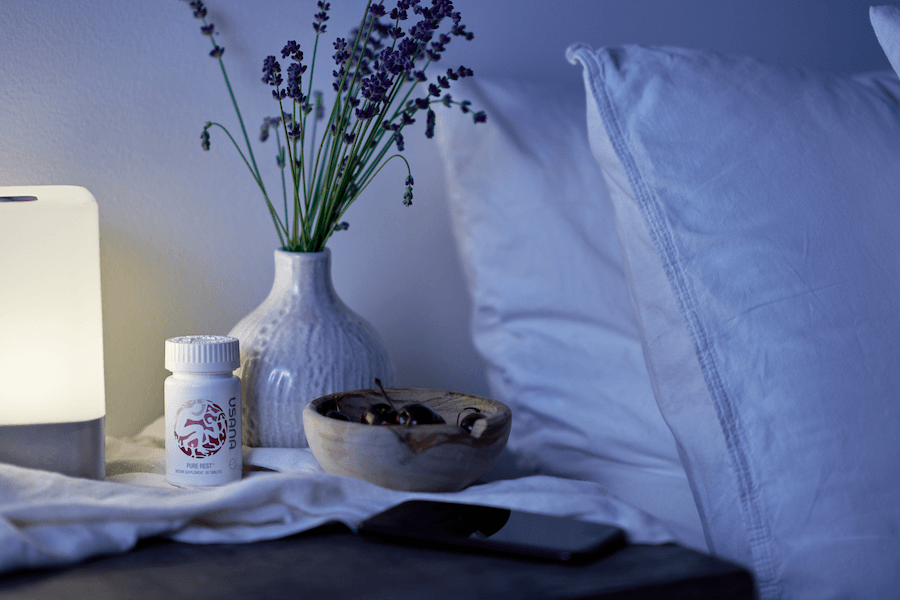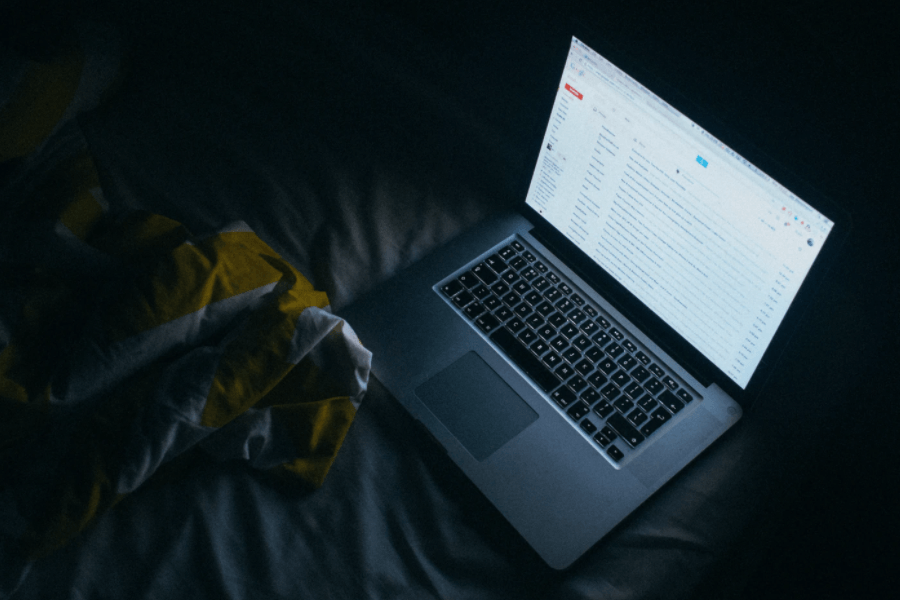Don’t Just Count Sheep: 30 Minutes to New Bedtime Habits

Sleep health is being seen more and more as a significant lifestyle factor for overall health. And rightfully so! With proven benefits like increased concentration and productivity, lower body weight, enhanced athletic performance and recovery, and improved mood, most would agree it’s worth creating a nightly routine for healthy sleep.
Current studies continue to uncover how critical sleep is to our health. And as a result, social norms are slowly shifting around the importance of sleep.
Once deemed heroic—the attitude toward a lack of sleep in the service of work, family, or exciting events is changing. Sleep debt is no longer an acceptable price to pay for success. Most adults need about 7–9 hours of sleep a night to support a robust immune system, optimized learning and memory function, and healthy blood sugar, among other benefits. Our need for sleep is emerging as a priority. And a healthy bedtime routine is one of the best ways to give yourself those healthful “Z”s.*
Snooze Your Way to Health
You probably already have a sleep routine for your children to help them succeed. But it’s just as important for you to adopt similar rules around your rest for optimal health and well-being.
Create a routine for the crucial 30 minutes before bedtime to give yourself the best chance to restore your body and brain to vibrant health. Get ready to call it a night, by making sleep hygiene a large part of your bedtime routine. Winding down is more effective when you:
- Limit daytime naps: short naps during the day can energize and improve alertness and performance, but snoozing longer than 30 minutes may interfere with your nightly sleep cycle.
- Cut caffeine: consuming this stimulant too close to bedtime interferes with your circadian rhythm and other biological mechanisms that prepare your body for sleep.
- Get regular exercise: daily exercise—even as little as 10 minutes per day—can improve your sleep quality.
- Avoid nighttime snacking: eating before bed can trigger indigestion, heartburn, and elevated blood sugar and disrupt your sleep.
- Greet the sun each day: exposure to natural light during the day helps to reinforce natural sleep and wake cycles. Take a walk in the morning or eat your lunch outside to help promote a more restful evening.
- Tune up your sleep environment: set a cool sleep temperature each night and create a comfortable atmosphere for relaxion and optimal sleep.
Light and Dark Before Bed
Any light, not just short-wavelength light within the blue spectrum, can affect sleep. But the use of screens and LED-powered devices have become a modern habit that negatively interferes with sleep and a relaxing wind-down routine.
Cutting off artificial light in preparation for bedtime is crucial for better sleep. While LED lights are a phenomenal invention and have huge impact on energy demand, they are detrimental to the internal clock that regulates your onset of sleep. Screens and bright lights affect the light receptors in your eyes that signal “daytime.” Give your after-hour projects a “curfew” of 30 minutes before you hit the sheets to help reduce stress and limit screen time.
Lock up your phone, put social media to rest early—have a hard and fast digital cutoff time each night. Thirty minutes before bed is a good starting goal, but the longer you can disconnect from to screens and devices before bed, the better you’ll sleep.
Consider moving your television out of the bedroom, charging your phone outside of your room at night, and a self-imposed restriction on your computer in the evening to help you adjust to a better routine.

A Habitual Winddown
Find out what calms you down after a busy day and practice a similar routine each evening. Different relaxation techniques appeal to different people, but here’s a few to try the 30 minutes before bed:
- Meditation
- Breathwork
- Stretching
- Warm baths
- Calming music
- Journaling
- Hot sauna
- Skincare
Ease the tension of your day by reflecting on and identifying what you can let go. Incorporating relaxation at least 30 minutes before dozing off trains your body to prepare for rest, promotes better sleep, and calms anxious thoughts that can lead to insomnia.
The “After Dark” Hormone: Melatonin
Shortly after dusk, the superchiasmatic nucleus—a small region of the brain that controls circadian rhythms—uses the hormone melatonin to signal the onset of night. The pineal gland instructs the body to raise levels of melatonin in the bloodstream to time your nightly sleep cycle.
For some, lifestyle factors can prevent normal sleep and wake cycles to signal sleep. For example, artificial blue light from screens and even lighting in your home can inhibit the natural release of melatonin. It can be beneficial to support your body’s ability to time the onset of sleep by supplementing with melatonin.*

Doze Off with Pure Rest
During your wind-down time before bed, follow your new sleepy time routine and remember to practice better sleep hygiene. Benefit from the safe and effective addition of USANA® Pure Rest. When taken at bedtime, it can support your body’s natural circadian rhythms and promote sleep. A fast-acting melatonin supplement, it promotes your body’s natural sleep and wake cycles—a great ally for a relaxing wind-down routine for healthy sleep.*
Create healthy nighttime habits. Be mindful of the precious minutes before bed to support health and optimal sleep. What are your favorite relaxing bedtime routines? Comment below.*
*These statements have not been evaluated by the Food and Drug Administration. These products are not intended to diagnose, treat, cure or prevent any disease.



Leave a Reply
Want to join the discussion?Feel free to contribute!